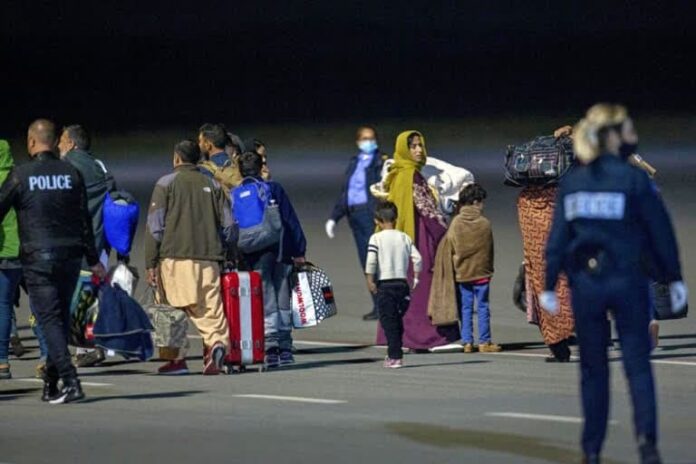| Translate This News In |
|---|
Thousands of Afghan refugees are fleeing the Taliban into Iran every day, and the trend, according to a top aid official, might eventually turn into a disaster for Europe. The Norwegian Refugee Council’s secretary-general, Jan Egeland, paid a visit to refugees in Kerman province, near the Afghan border, this week. If the flow into Iran continues, he said, Europe may be affected.
Egeland said more needed to be done to provide hope, food, and care for Afghans fleeing the Taliban when speaking to The Associated Press in Tehran at the end of his tour on Wednesday. “Many Afghan refugees have called families to say they are on their way to Iran, and many want to continue to Europe, so Europe should be less crowded with a few thousand (refugees) sitting on the Polish-Belorussian border.” “Today, more people entered Iran than are now on the border,” he continued.
In the days following the Taliban’s capture of Kabul on August 15, more than 1,20,000 Americans, Afghans, and others were flown out of the country in a huge airlift operation. Thousands more, however, were left behind, with many fleeing to the borders and seeking relief from humanitarian organisations. According to the NRC, since the Taliban took control of Afghanistan, an estimated 3,00,000 people have fled to Iran.
“There is no economy, very little support, and far too little housing and food for millions upon millions of people in need,” Egeland added. He claims that as the Afghan winter approaches and there are insufficient refugee shelters in Afghanistan, more migrants will seek sanctuary in Iran. “We expect this to worsen when hundreds of thousands of people cross the Afghan-Iranian border. In Afghanistan, the winter will be brutal “he stated.Before the deadly winter cold, the secretary-general asked wealthier countries to promptly increase their humanitarian contributions, both within Afghanistan and in neighbouring countries such as Iran. According to the NRC, 4,000 to 5,000 Afghans flee to Iran every day through unofficial border crossings. Iran has reportedly aided the Afghans, as well as hundreds of thousands of others who have sought refuge in the nation for much longer periods of time, some for decades.
Egeland spoke with some of the refugees during his visit to Kerman region, and he stated that the 3.5 million Afghan migrants already in Iran are suffering as a result of US sanctions. Ahmad Vahidi, Iran’s interior minister, stated on Tuesday that Iran’s border with Afghanistan sees thousands of people every day. He, too, cautioned that if assistance is not provided, a new wave of Afghan refugees may try to enter Europe. When the former Soviet Union invaded Afghanistan in 1979, millions of Afghans fled to Iran. After the occupation ended in 1989, years of civil strife followed, eventually leading to the establishment of a Taliban-controlled government.Then came the terrorist attacks on New York and Washington on September 11, 2001, and the US-led invasion that followed, aimed at al-Qaida leader Osama bin Laden, who was being held by the Taliban.
Along a 945-kilometer (580-mile) shared border, Iran and Afghanistan have three border crossings. Iran is said to be home to more than 3 million undocumented Afghans and 8,00,000 registered Afghan refugees. However, some Afghans in Iran have left the country in the years since the United States dropped out of the 2015 nuclear deal with world powers and reimposed sanctions that pushed the country’s economy into freefall.
Egeland lauded Iran for harbouring millions of Afghans for the previous four decades, and said the international community must now help. “How do you expect Iran to carry this burden on its own?” he asked. “If Europe wants to prevent Afghans from travelling towards Europe, it should invest in hope, possibility, and opportunity within Afghanistan and in neighbouring nations.”


















